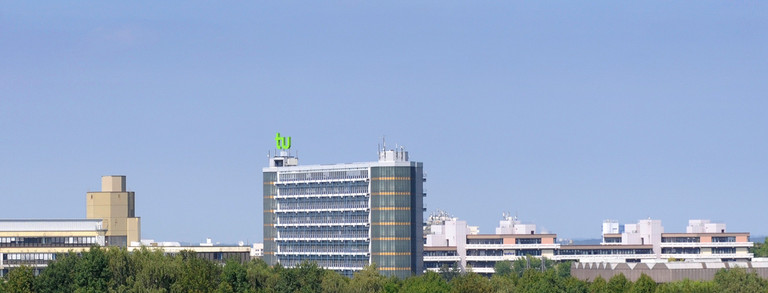Graduate School of Physics Starts Work
- Particle Physics
- Top News
- Studying & Teaching at TU Dortmund University

Each year, around 30 early career researchers earn their doctoral degrees at the Department of Physics. To give all of them equal support in their personal and academic development during their doctoral studies, the department has anchored the “Dortmund Graduate School of Physics” in its new doctoral regulations. Professor Kevin Kröninger, Dean of the Department of Physics, explains: “The Graduate School aims to provide a framework for the optimal support of early career researchers during their doctoral studies.”
Alongside internationality and family-friendliness, networking and career planning are also among the program’s cornerstones. For example, the Graduate School organizes meetings for doctoral candidates, where they can not only talk about their projects but also share their personal experiences during their doctoral studies. In this context, the department also offers help with career planning and illustrates possible pathways in academia, but also assists with choosing a career in business. In parallel, the doctoral candidates should also build up their own academic networks to foster their careers. The Graduate School also systematically encourages international research and supports researchers wanting to go abroad. Advice and help in reconciling family and doctoral studies are also available for those with children or caring for relatives.
The Graduate School is also putting structural measures in place to ensure the quality of doctoral studies. For example, doctoral candidates sign an agreement with their supervisor at the beginning of their doctoral degree that defines goals and expectations. In addition, there are two binding feedback meetings per year. “We want to encourage our doctoral candidates to reflect systematically on their progress and to write an annual report on the status of their doctoral thesis. This enables them to set about it in a more targeted and structured way,” explains Dr. Doris Reiter, Managing Director of the new Graduate School. Should conflicts arise nonetheless, there are two mentors on hand to assist them.
However, the most important thing about a doctoral degree is and remains doing exciting research at the highest level. Joshua Althüser, the first doctoral candidate in the Graduate School, is also looking forward to this. He is working on “Composite collective excitations in correlated quantum materials” within the theoretical solid-state physics group led by Professor Götz Uhrig. In this context, he wants to investigate various competing interactions in order to better understand new types of quantum materials. Although a draft for the project work was written, new and unexpected results are always welcome. “After all, physics is at its most exciting when you discover something new,” says Professor Uhrig.
Website of the Graduate School
Contact:





![[Translate to English:] Partner Four hands are holding the green logo of TU Dortmund University](/storages/tu_website/_processed_/1/d/csm_Partner_Nicole_Rechmann_KW_670eba0154.jpg)




![[Translate to English:] Forschung An apparatus with tubes in a laboratory](/storages/tu_website/_processed_/0/c/csm_Forschung_Juergen_Huhn_4fa3153b51.jpg)
![[Translate to English:] Studium Five students are sitting in a lecture hall. They are talking to each other.](/storages/tu_website/_processed_/c/9/csm_Studium_FelixSchmale_dbdbfb0dd7.jpg)





